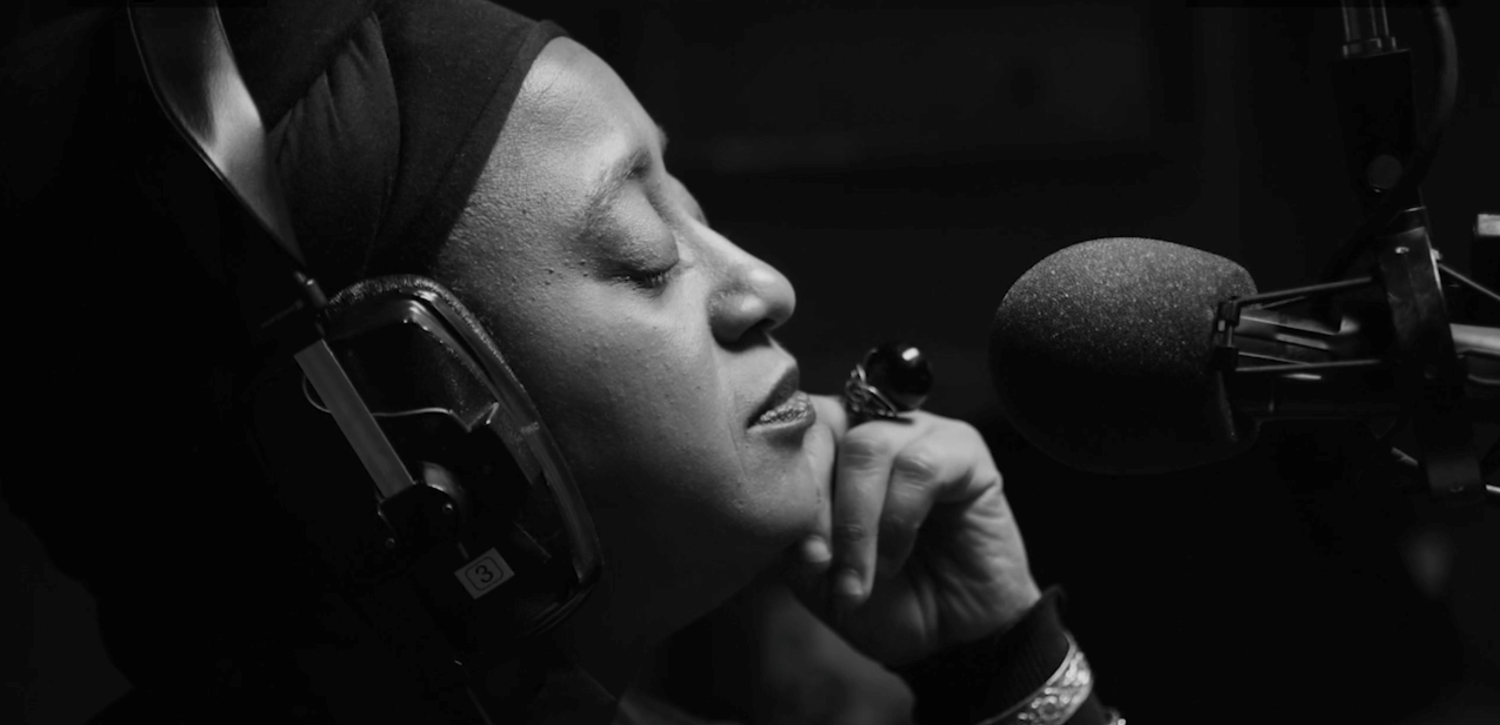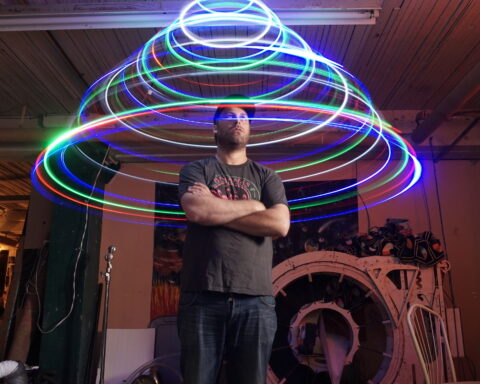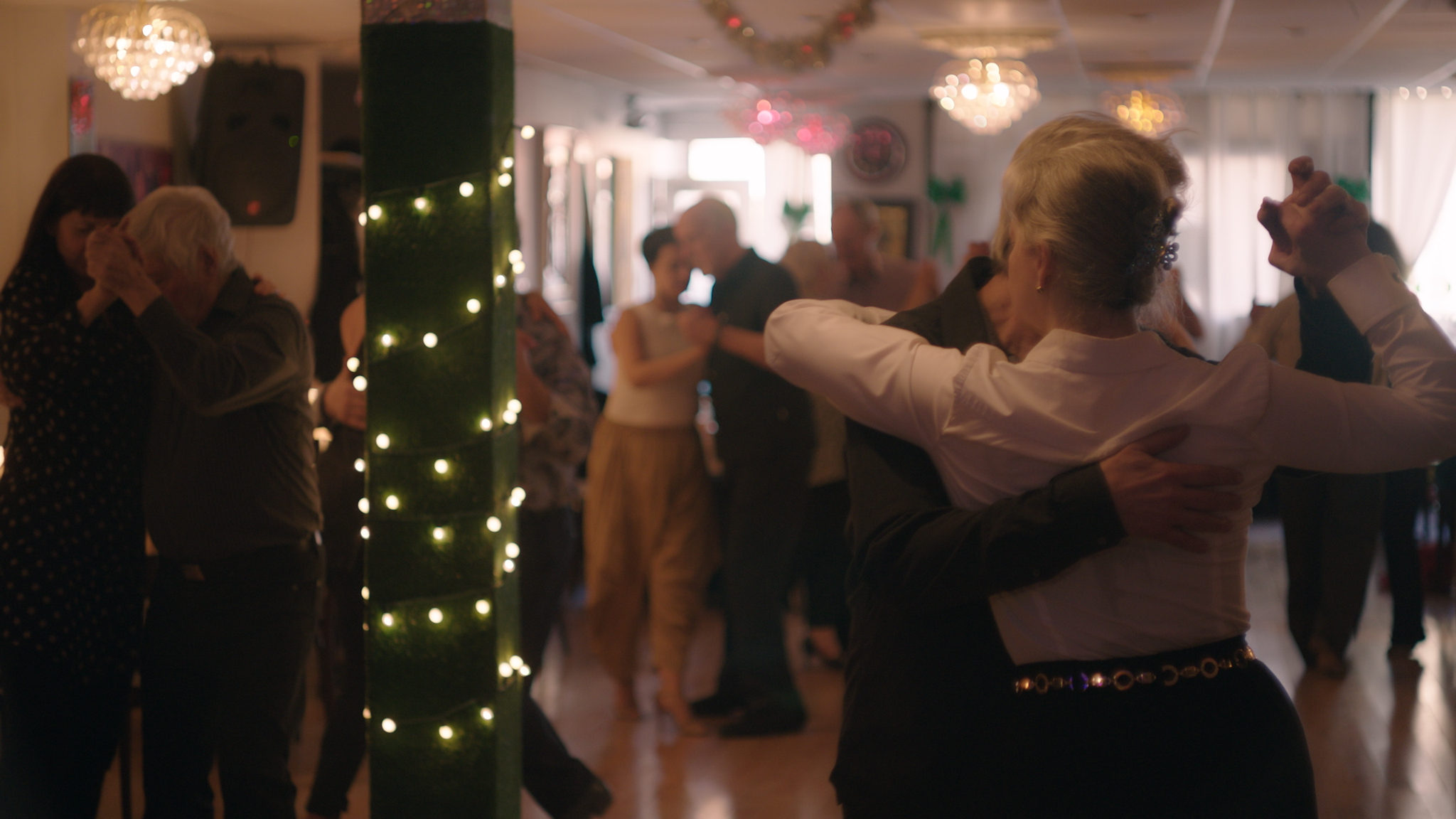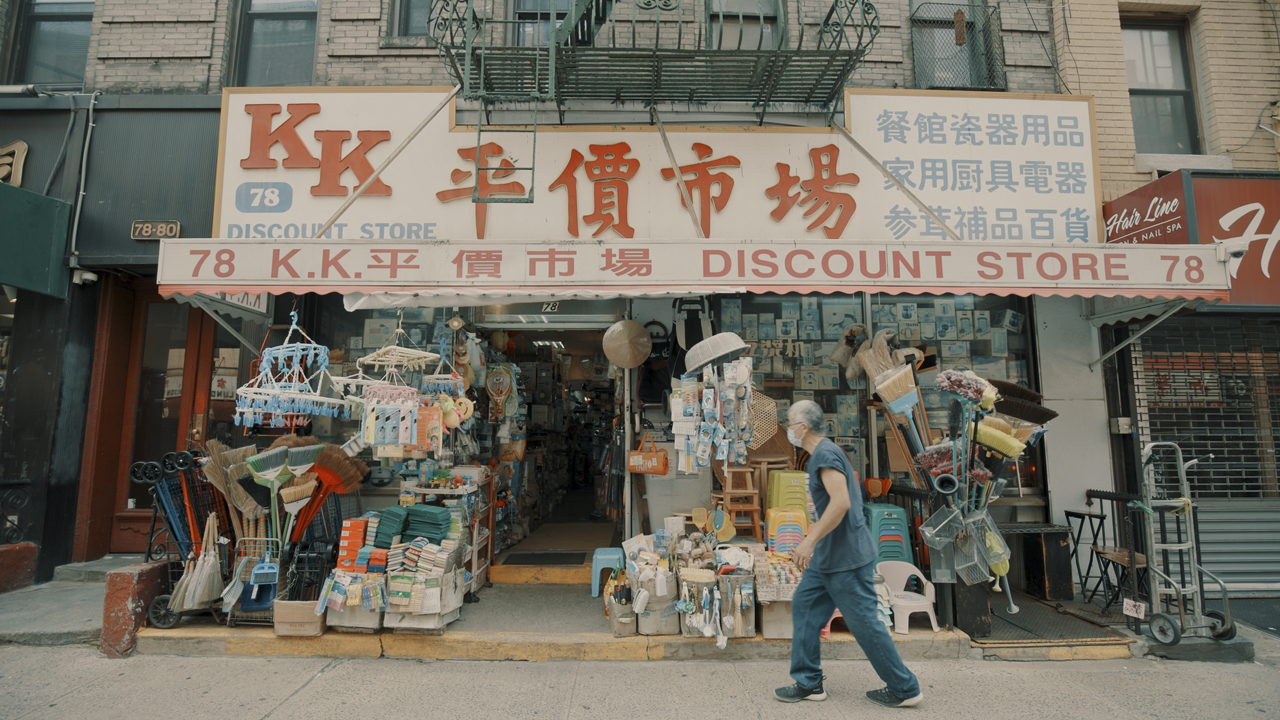Despite the name of the film and its dedication, the documentary Dear Jackie, directed by Henri Pardo, isn’t really about Jackie Robinson, the first African American player in Major League baseball who, after being signed by the Dodgers, played for their minor league team, the Montreal Royals, for the first year of his professional career.
“It’s a premise and an excuse to talk about Black Montrealers,” says Pardo. “It’s a wink to him, but the film is actually about this almost-forgotten community that is too incredible to go unnoticed.”
The community Pardo is speaking about is the Little Burgundy area of Montreal. For decades this southwest borough has been home for the Black community in Montreal from varying backgrounds. Pardo’s film guides the audience through the rich history of Little Burgundy, each character becoming an entry point into the neighbourhood.
A Montreal actor and filmmaker, Pardo wanted to hand the mic to people in the community who don’t usually get their voices heard, but without exploiting their experiences. He spent two years making the film, doing far more than just visiting Little Burgundy. Pardo actively organized events and raised funds, especially with the Negro Community Centre (NCC). Pardo says it was important for him to revive this vital centre that opened in 1927.
There are always studies and film projects where artists do a story, run with it, and then don’t come back. I didn’t want to be one of them.” Pardo says. “I met people and got their trust when they knew that I wanted to pay homage to the community and to properly demonstrate their experience.”
The film notes the history of gentrification that began with Montreal’s “Urban Renewal” in the ’60s, which impacted the shops, churches, and homes of every Black person in Little Burgundy as most were dislocated and dispersed by demolitions ordered by then-Mayor Jean Drapeau. Neighborhoods were demolished and Black-owned businesses and families suffered displacement.
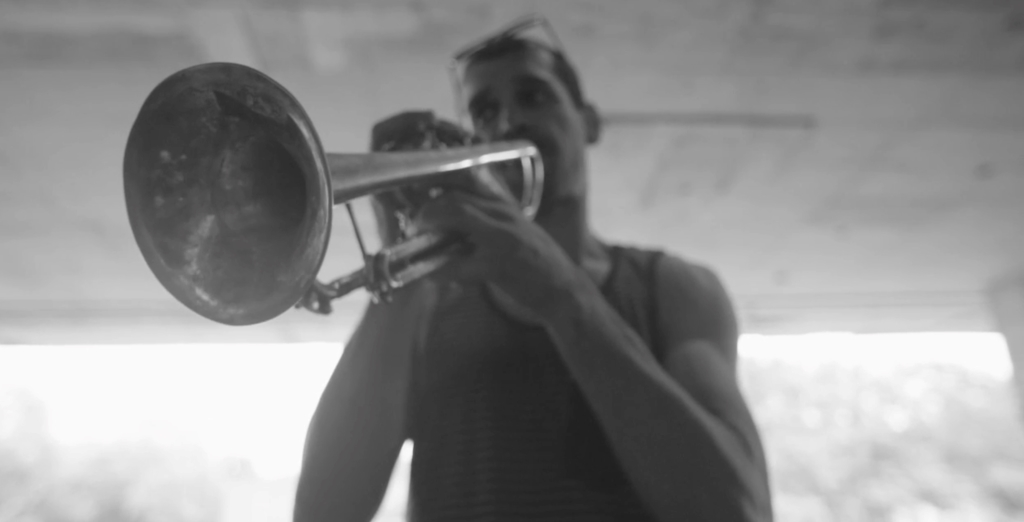
Although the destruction and its lasting impact are clear in the film, Pardo highlights the damage by focusing on the rich culture that shaped not just Little Burgundy’s, but the world’s culture and music. Jazz played by local Black musicians played an immense part in Montreal’s golden post-war era in the 1940s and ’50s. Montreal became, alongside the great jazz cities of Chicago and New York, one of the best during that time. The great pianist Oscar Peterson emerged from Montreal then, which helped to focus attention on an exotic Canadian city. Pardo highlights this through an interview with Peterson’s friend and fellow Montreal pianist, Oliver Jones.
Despite the big additions to music and culture brought in by Black Montrealers, Pardo knows most Canadians don’t appreciate the impact of Little Burgundy. “The thing that is sad,” says Pardo, “is a lot of Black history is written out and erased. This is why I wanted to make this film.”
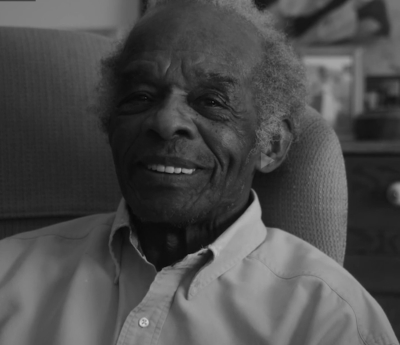
Pardo adds, “I learned about Jackie Robinson when I was in my 20s. I did not know he started here with the Montreal Royals. A lot of the people in Little Burgundy knew of him, but it has always remained something that is not as well-known as it should be across Canada.”
The film contrasts the irony of Montreal’s whole-hearted acceptance of Jackie Robinson in 1946 to the overt racism that still held the Black community back in those post-war years. Pardo doesn’t appear on-screen in the film, but he shares with POV that it was an intimate and personal project. Although he grew up around five kilometers away from Little Burgundy in Côte-des-Neiges and is from a Haitian family, Pardo saw himself in the stories of the characters he met. He points out, “There are similarities in the way we raise our children and behave with one and another. There are a lot of links between the diasporas.”
Pardo does make an appearance through the film’s narration, which takes the form of an open letter to the late Robinson. Pardo says he wrote the narration after completely editing the film. It was important to Pardo to write words that work with the visuals and the interviews, whilst still ensuring that the Jackie Robinson milestones were clear.
“I didn’t want something too informative, but more of a confession of what the community was going through.” He adds, “It was a way to put myself in this film. This whole collage of characters coming together. I really wanted to be able to bridge between them and our ancestor Jackie.”
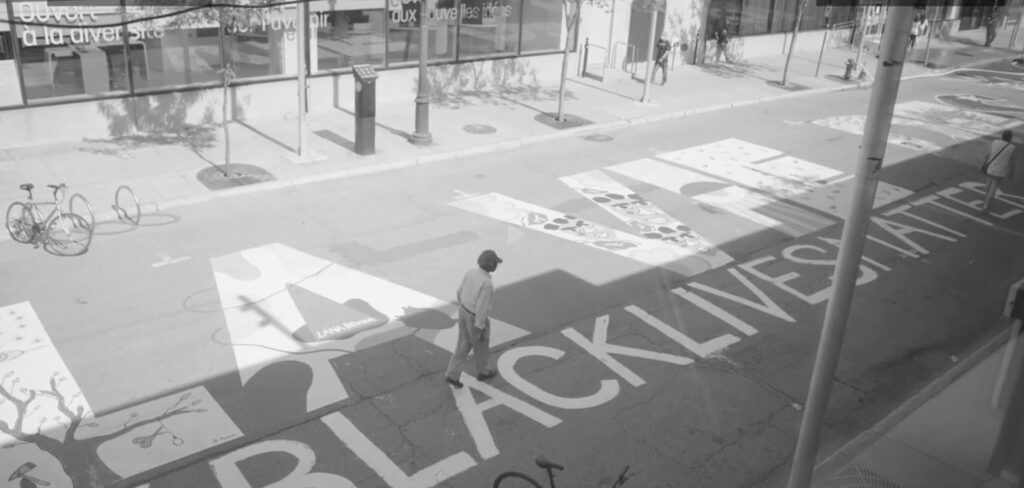
Pardo says he saw his own family and experiences in the traumas and vulnerability of the characters he interviewed. Hearing about one of the characters in the film, Charlene, and the sacrifices she made, reminded him of his own mother.
“They were so honest and willing to talk about their traumas. That became something that got stuck to me.”
Most significant to Pardo is his relationship with the NFB doc Golden Gloves (1961), directed by Gilles Groulx. The film is about three Montreal boxers training and preparing for a tournament in Montreal. The lead is a Black boxer from Little Burgundy, Ronald Jones, whose appearance had a major impact on Pardo when he first saw the film as a young aspiring performer.
“The industry told me Black people didn’t exist in that time and I was trying to make my way as a Black actor. When I saw Golden Gloves and saw this young Black man in his 20s, thriving and living well with his family, it was inspiring,” says Pardo.
Having scenes from Groulx’s classic in Dear Jackie made the film a sort of family reunion; as he says, “a magical day for everyone.”
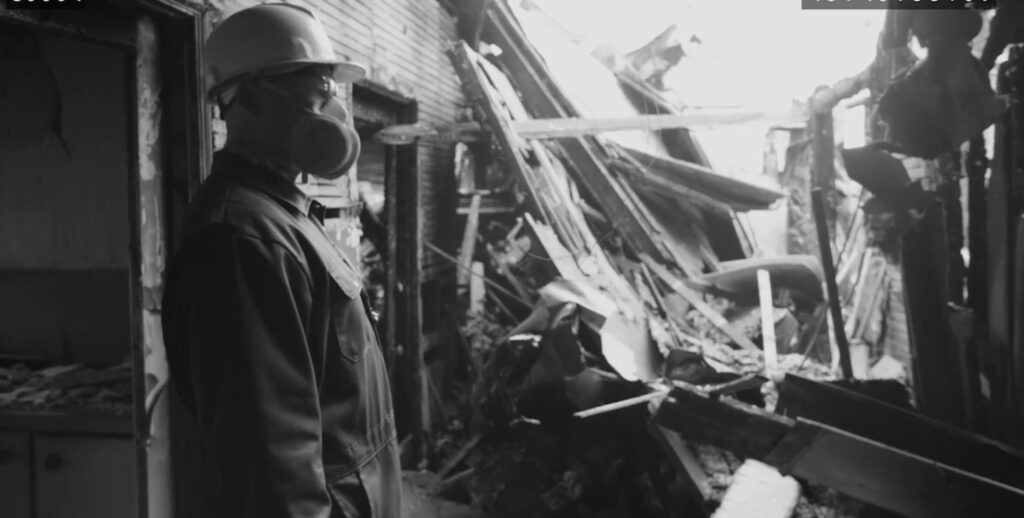
Despite the film observing and listening to characters living in Little Burgundy right now, including such remarkable individuals as activist Majiza Philip, former athlete and academic Ivan Livingstone, and radio broadcaster and former NFBer Pat Dillon-Moore, Pardo says he chose to shoot the film in black and white to merge the past with the present.
“A lot of things keep repeating themselves, like gentrification now, which used to be called urban renewal,” says Pardo. “The archival footage was a lot of black and white, so I wanted to create confusion with time and space. It is up to the audience to colour it.”
Dear Jackie shows a Little Burgundy community still struggling with racism nearly 80 years after Jackie Robinson brought down the colour barrier in baseball and made Montreal look good by applauding him. It’s a film that exposes ongoing issues in Canadian society.




